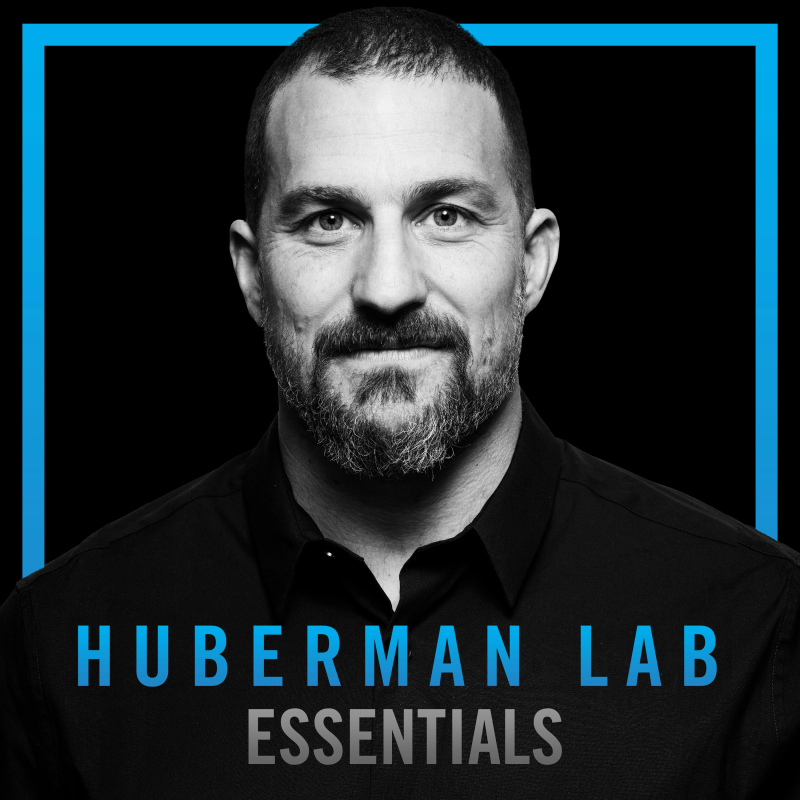
Essentials: Science of Mindsets for Health & Performance | Dr. Alia Crum

In this Huberman Lab Essentials episode, my guest is Dr. Alia Crum, PhD, professor of psychology at Stanford University and the director of the Stanford Mind & Body Lab.
Dr. Crum explains that our mindsets—for example, what we believe about stress, exercise and the food we eat—shape how we feel, behave and even how our bodies respond. We discuss studies showing simply believing a food is indulgent can shift satiety hormones and that viewing your daily activity as real exercise can improve weight loss and health markers. We also discuss how to reframe stress so it becomes a tool for growth and improved performance.
Read the episode show notes at hubermanlab.com.
Thank you to our sponsors
AG1: https://drinkag1.com/huberman
Function: https://functionhealth.com/huberman
Carbon: https://joincarbon.com/huberman
Timestamps
(00:00) Alia Crum
(00:20) Mindset, Core Beliefs; Examples of Mindset
(04:56) Mindset Shapes Body's Response, Placebo Effects, Tool: Mindset for Weight Loss
(10:18) Sponsor: Function
(11:58) Different Diets & Mindset
(13:32) Nocebo Effect
(14:26) Exercise Mindsets, Weight Loss & Health Benefits
(17:11) Stress, Tool: Stress is Enhancing Mindset, Mental & Physical Benefits
(24:24) Mindset, Stress, Motivation & Physiology
(26:18) Sponsors: AG1 & Carbon
(29:21) Stress, Mindset & Hormones
(30:53) Mindsets as Portals to Unconscious, Tool: Stress Mindset Awareness
(32:28) Leverage Stress, Tool: Adopt a Stress is Enhancing Mindset
(35:31) Mindsets Matter, Athletics
(37:19) Resources, Toolkits & Acknowledgements
Disclaimer & Disclosures
Learn more about your ad choices. Visit megaphone.fm/adchoices
Popis podcastu
The Huberman Lab podcast is hosted by Andrew Huberman, Ph.D., a neuroscientist and tenured professor in the department of neurobiology, and by courtesy, psychiatry and behavioral sciences at Stanford School of Medicine. The podcast discusses neuroscience and science-based tools, including how our brain and its connections with the organs of our body control our perceptions, our behaviors, and our health, as well as existing and emerging tools for measuring and changing how our nervous system works.
Huberman has made numerous significant contributions to the fields of brain development, brain function, and neural plasticity, which is the ability of our nervous system to rewire and learn new behaviors, skills, and cognitive functioning. He is a McKnight Foundation and Pew Foundation Fellow and was awarded the Cogan Award, given to the scientist making the most significant discoveries in the study of vision, in 2017.
Work from the Huberman Laboratory at Stanford School of Medicine has been published in top journals, including Nature, Science, and Cell, and has been featured in TIME, BBC, Scientific American, Discover, and other top media outlets.
In 2021, Dr. Huberman launched the Huberman Lab podcast. The podcast is frequently ranked in the top 10 of all podcasts globally and is often ranked #1 in the categories of Science, Education, and Health & Fitness.